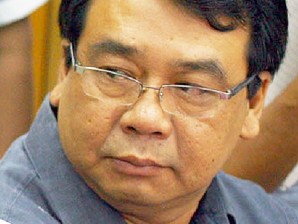House prosecutor seeks definition of terms
First, a definition of terms, according to a House prosecutor.
The Senate will sit as an impeachment body, not an impeachment court, when it tries Chief Justice Renato Corona for betrayal of public trust, graft and corruption and culpable violation of the Constitution, starting January 16.
Second, senators who will decide on his fate should be called impeachment senators, not senator-judges.
Bayan Muna Representative Neri Colmenares said that the forthcoming Corona trial in the Senate would be more political than legal.
“This is a political body impeaching a public official based on the basic principle of justice and fairness. They are called impeachment senators because they’re not doing a legislative function but they’re doing a constitutional function of impeachment,” Colmenares told the Philippine Daily Inquirer in an interview.
Article continues after this advertisementPolitical process
Article continues after this advertisement
“We should first dispel the perception that it is a judicial process because if you have one million evidences against Corona but did not want a ruling (from the Senate), can you go up the Supreme Court for a final decision and say it’s against the Constitution? No, because they have their own impeachment rules.”
Colmenares said that Senator Antonio Trillanes IV was on the “right track” for saying that impeachment indeed was a political process, as duly supported by the opinion of former Chief Justice and Inquirer columnist Artemio Panganiban.
Panganiban has said that by its nature, impeachment belongs more to the people than to lawyers; more to public wisdom than to legalisms.
“An impeachment proceeding is sui generis (meaning of its own kind); has its own unique genre, and is equal to no other,” Panganiban said.
He said terms like “impeachment court” and “senator-judges” evolved only during the impeachment trial of then President Joseph Estrada 10 years ago.
Since it was the first impeachment trial of a sitting President, people involved had to grope for words to describe everything, Colmenares said.
This is about people
He said that during the Estrada trial, the impeachment senators voted not to open the second envelope on Jan. 16, 2001, by invoking the Rules of Court.
The nonopening of the second envelope, alleged to contain incriminating evidence against Estrada, simply because it was not part of the impeachment complaint caused House prosecutors to walk out of the proceedings in protest of this vote.
That night, anti-Estrada protesters gathered on Edsa and replicated the 1986 People Power Revolution. As a result, Estrada was ousted and then Vice President Gloria Macapagal-Arroyo was swept to the presidency.
“So it’s not correct to say that the people have no role in this proceedings. This is all about the people as the charge is betrayal of public trust,” Colmenares stressed.
